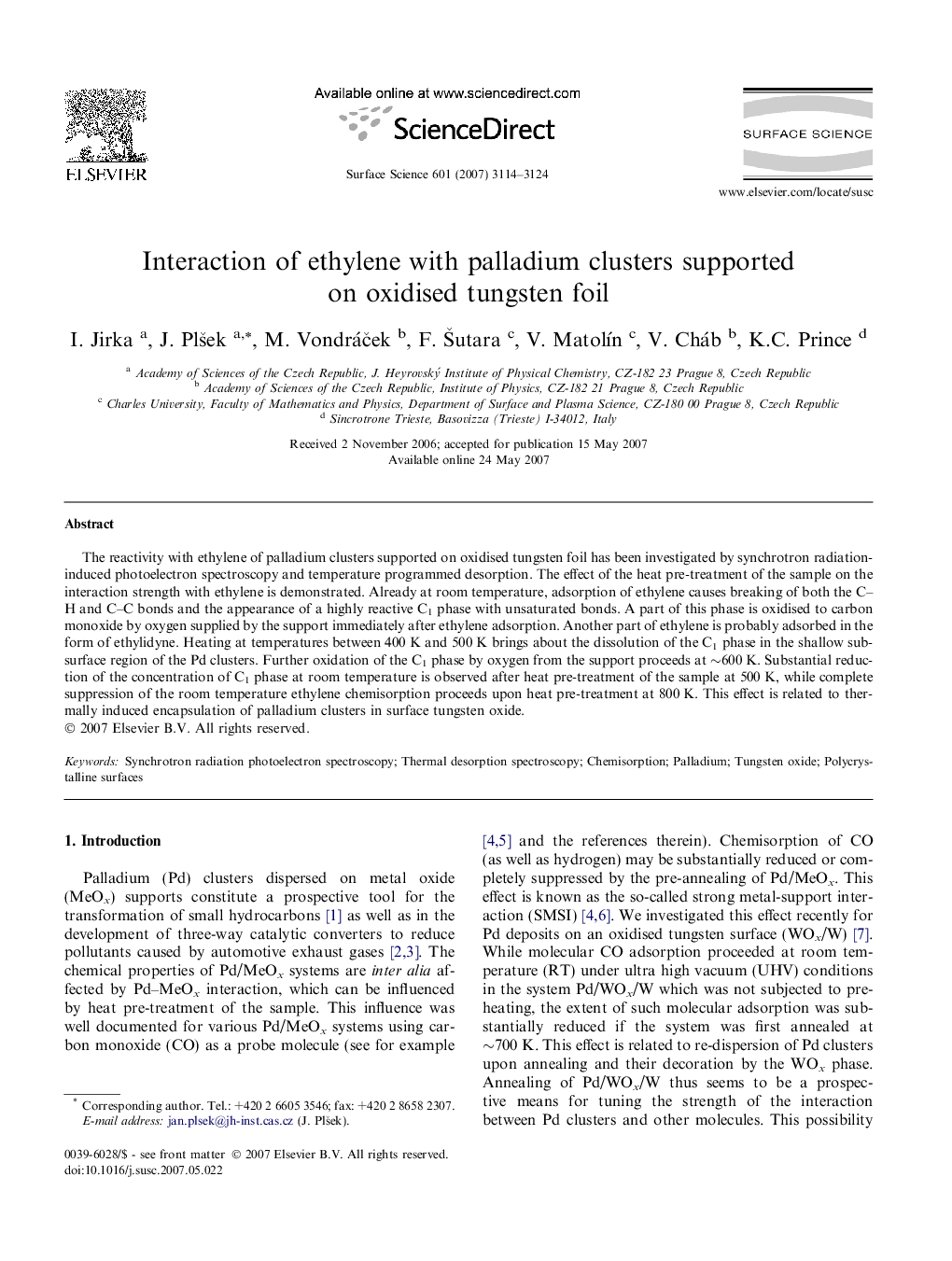| Article ID | Journal | Published Year | Pages | File Type |
|---|---|---|---|---|
| 5426639 | Surface Science | 2007 | 11 Pages |
The reactivity with ethylene of palladium clusters supported on oxidised tungsten foil has been investigated by synchrotron radiation-induced photoelectron spectroscopy and temperature programmed desorption. The effect of the heat pre-treatment of the sample on the interaction strength with ethylene is demonstrated. Already at room temperature, adsorption of ethylene causes breaking of both the C-H and C-C bonds and the appearance of a highly reactive C1 phase with unsaturated bonds. A part of this phase is oxidised to carbon monoxide by oxygen supplied by the support immediately after ethylene adsorption. Another part of ethylene is probably adsorbed in the form of ethylidyne. Heating at temperatures between 400Â K and 500Â K brings about the dissolution of the C1 phase in the shallow subsurface region of the Pd clusters. Further oxidation of the C1 phase by oxygen from the support proceeds at â¼600Â K. Substantial reduction of the concentration of C1 phase at room temperature is observed after heat pre-treatment of the sample at 500Â K, while complete suppression of the room temperature ethylene chemisorption proceeds upon heat pre-treatment at 800Â K. This effect is related to thermally induced encapsulation of palladium clusters in surface tungsten oxide.
